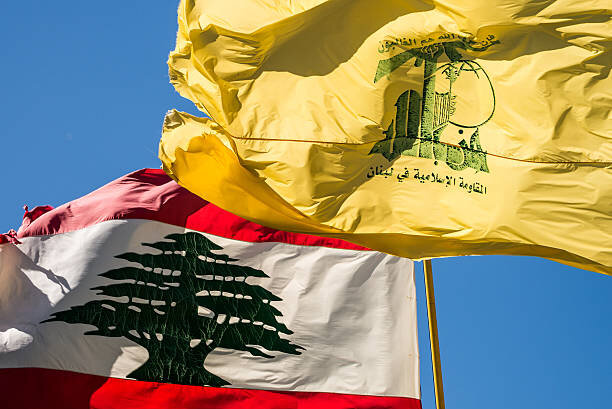US pressure on Lebanon reveals plan to enforce normalization with Israel

SOUTH LEBANON – Today, Sunday, the residents of the occupied border towns – Yaroun, Maroun al-Ras, Aitaroun, Blida, Mays al-Jabal, Houla, Markaba, Adaisseh, and Kfar Kila - will resume their liberation movement as the Israeli enemy continues its attacks in south and north of the Litani River.
The meeting that brought together Morgan Ortagus, the US Deputy Special Envoy for West Asia, with General Jasper Jeffers, Chairman of the Ceasefire Implementation Supervision Committee, did not announce any guarantees that the occupation regime would be obligated to withdraw on February 18, but rather to launch an intensive inspection of about 30 sites suspected of being Hezbollah facilities.
The committee had informed the Lebanese army that it had information about alleged sites where it claimed Hezbollah was hiding ammunition and weapons.
While the committee ignores the killing and kidnapping of Lebanese civilians by the occupation forces, analysts expect international pressure on Lebanon, warning of the possibility that Ortagus and Jeffers will blackmail Lebanon to ensure that the occupation forces will remain in 5 strategic locations on the border in a bid to establish a “buffer zone” under the pretext of ensuring the security of the colonial settlers.
Yanon Magal, a political commentator close to Netanyahu, pointed out that “from the Trump administration’s point of view, Israel can remain in the five locations in southern Lebanon as long as Lebanon violates the ceasefire agreement,” revealing that American officials have told their Israeli counterparts: “Do whatever is necessary to enhance your security. We will not stand in your way.”
Washington wants to subject Lebanon to the implementation of the Israeli version of UN Resolution 1701 as it does not plan anything other than achieving the broad normalization project across the region.
Despite Hezbollah’s political flexibility, Washington is pressuring Nawaf Salam, the Prime Minister, to form a “government free of partisans and politicians” whose ministers are merely employees who carry out the highest orders, most notably obstructing the reconstruction of what was destroyed by Israel, its proxy in the region, during the two months of intensive bombardments of Lebanon that started in September and lasted until November.
This has been confirmed by the possibility of US President Donald Trump’s participation in the opening ceremony of the largest intelligence complex in West Asia – which they call the new US embassy in Beirut – which will recruit about two thousand US political, security and military personnel.
What is happening is nothing but the Plan B of the failed war in the region. Immediately after the fall of Bashar al-Assad’s government, and amid the Israeli incursion, al-Julani’s (Ahmed al-Sharaa) position was decisive regarding the elimination of the Palestinian resistance in Syria, especially in the border area with Lebanon. Al Julani reiterated his will he has no intention to fight “Israel”.
According to Al Akhbar newspaper’s leaks, during his visit to Damascus, Najib Mikati, the caretaker prime minister, was repeatedly asked, “In your opinion, is Anwar Sadat considered a traitor?” Mikati did not answer al-Julani. The latter addressed him: “I thought about it for a long time. I have studied all the revolutions in the world, and I reviewed the ideologies and forces that the Arab nation has experienced. Now, I believe that – at that time – if I were in Sadat’s place, I would have done the same thing!”
Obviously, al-Julani did not miss an opportunity to please Washington as further leaked information has revealed his intention to grant Syrian citizenship to all Palestinian refugees in Syria.
Meanwhile, the Israeli enemy attaches great importance to the meeting that will bring together Netanyahu and Trump next week. There are no definitive estimates regarding the future of the region, as all assumptions remain valid, especially in light of the presence of a volatile personality like Trump, a factor that Netanyahu bet on.
Leave a Comment